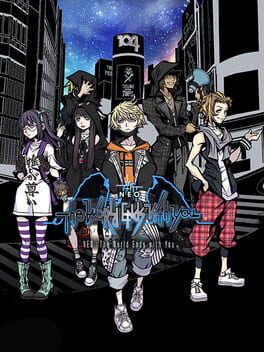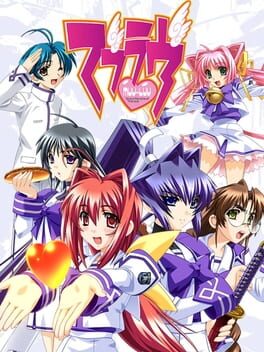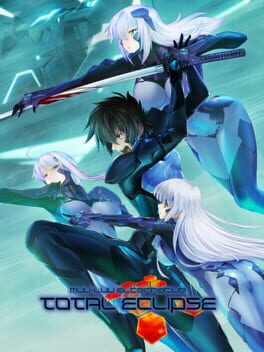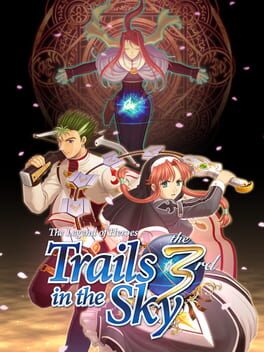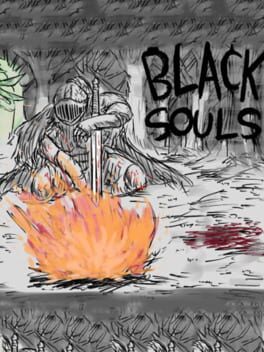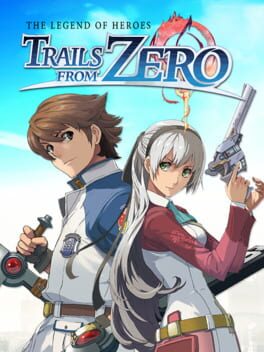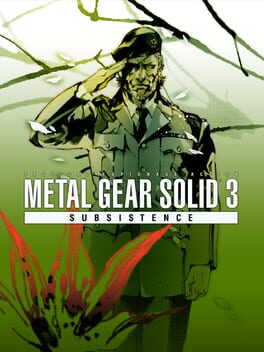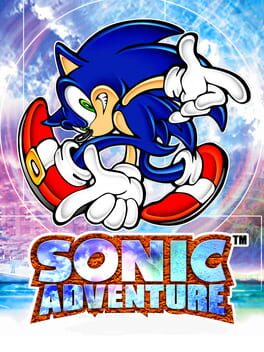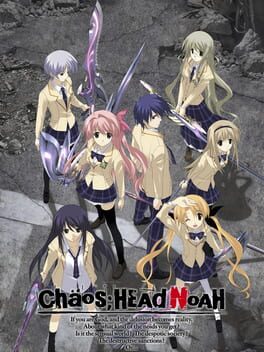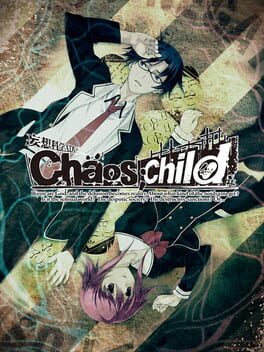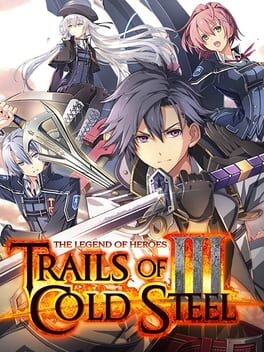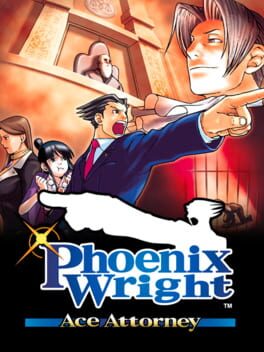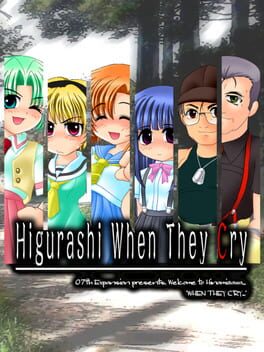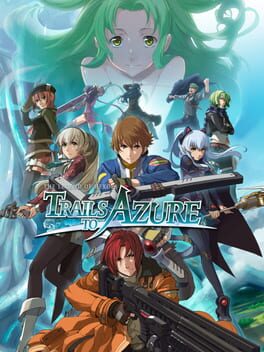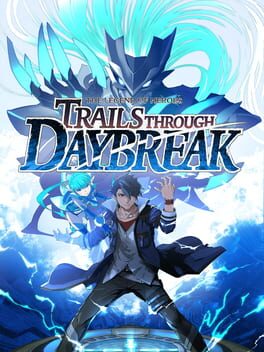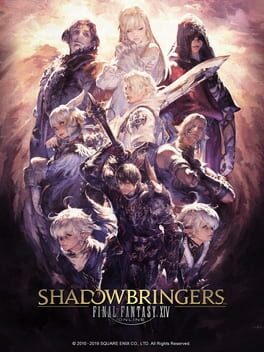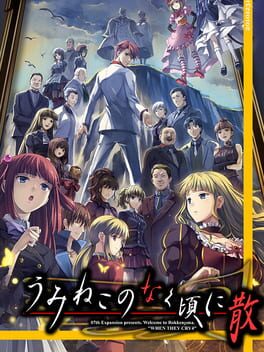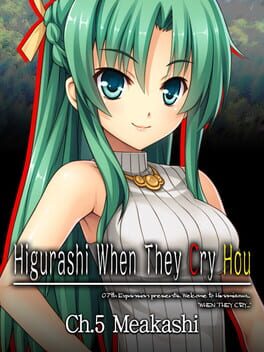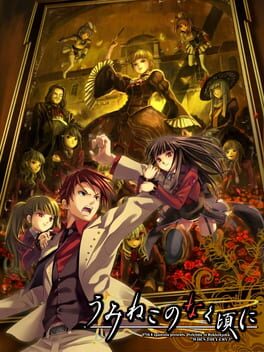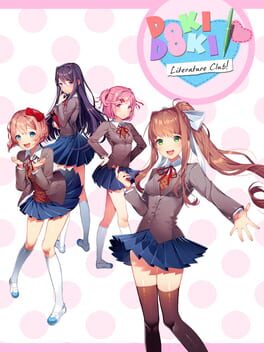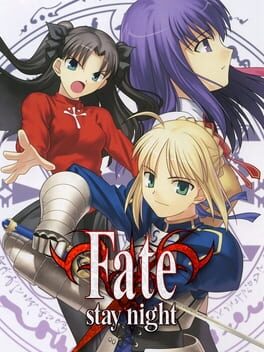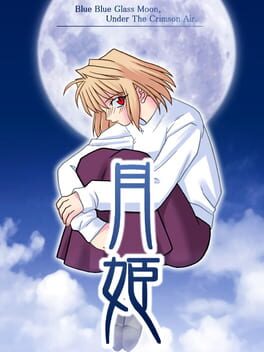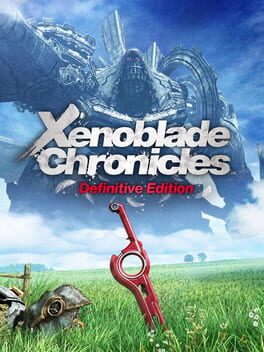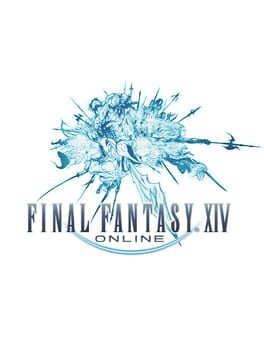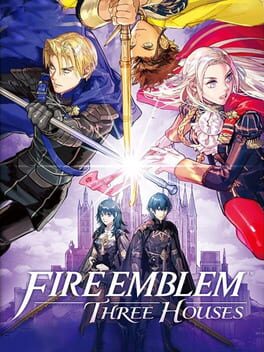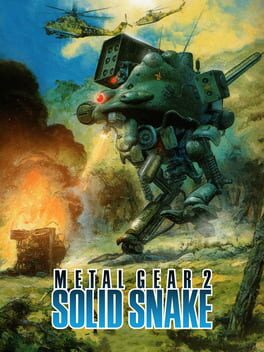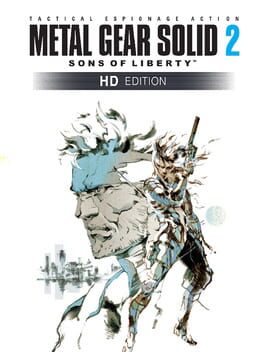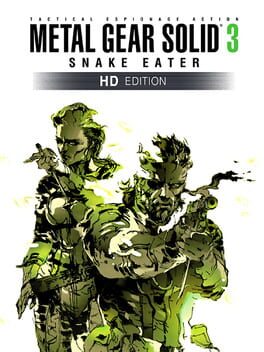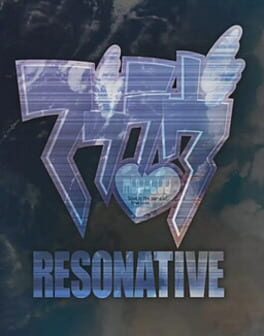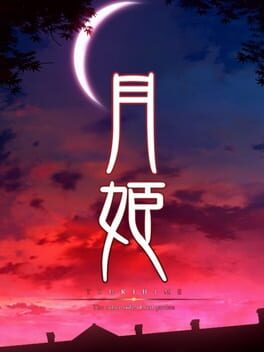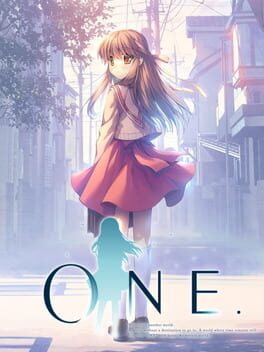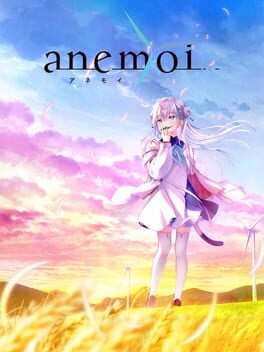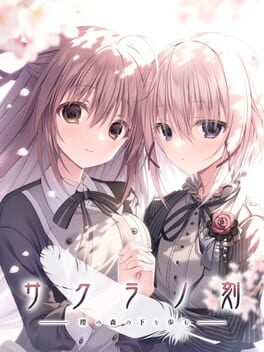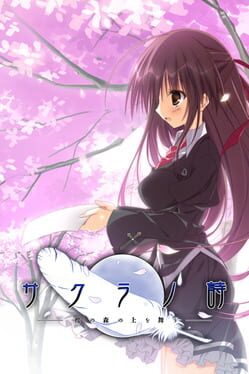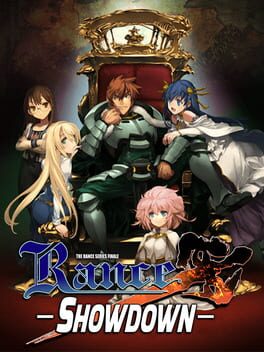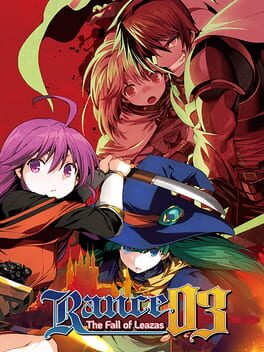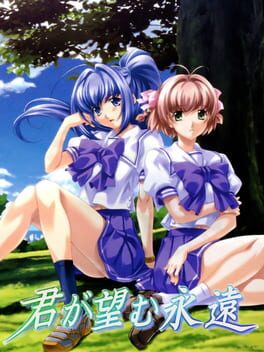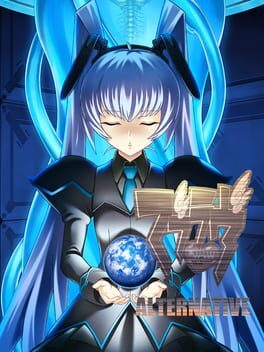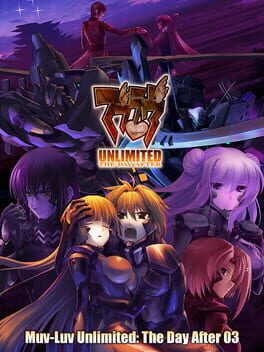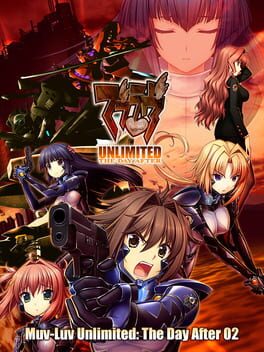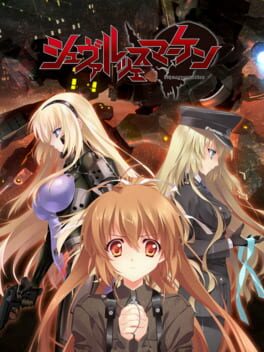Nano20
132 reviews liked by Nano20
I waited years for this game to release. It was the number 1 thing I was looking forward to playing. I tracked every pre-release review, clues in mobile games, scraps of info after Final Remix. Anything. TWEWY is my favorite game of all time. I wanted to love this game so, so badly. When it came out, I played it all in a weekend start to finish. Needless to say, I never anticipated something more in my life. I was ready to get absorbed in everything all over again with a new cast and learn new lessons tailored more to the modern era.
...That's why I'm sorry to say this part. If you played the original, do not play this.
Not because this is a "bad" game or because the art quality suffers or music is bad, no no. It still maintains all those qualities of the original and expands on them tenfold. It really is a Gorgeous game all the way through. I commend the team for what they were able to accomplish with respect to the battle systems, Nomura modern fashion tastes, impeccable music, and the incredible 3d background designs. I think the world of this game is one of the most gorgeous I've ever played. Now, with all that out of the way, what could possibly be the problem with it?
The writing. It's very much a Safe game. It doesn't challenge the player in any way that appealed to me so strongly about the unique vision of the original DS TWEWY. The characters straightforwardly perform all their goals and don't face lifestyle challenges or interact the same with mechanically that Neku was able to with his cast. The game is bloated with meaningless dialogue from minute one to 200 hours in. The characters talk but don't have much to say that is challenging or engaging like Neku's examinations into his loneliness and scorn towards others. I do not feel compelled at all to get the secret reports or do the bonus modes the same way I was for the original. Nagi is introduced as a perfect social communicator despite her neet background and then that's it for the rest of the game. She's able to handle every social scenario onwards and faces no serious shortcomings in the plot. She's another one of Rindo's lackeys. She has a crush on Minamimoto. She has a rivalry with Fret. That's... about it. She's subversive because she's not a depressed nerd, but the writers forgot to give her meaningful actions and arcs beyond that. The whole game is like this but I don't have the energy to go into every nitpick. It's just a very shallow game.
When I finished this game, the only thing I thought was "Well... That was fine I guess." which to me is the biggest sin a piece of art can commit. I so desperately do not want to be a hater for this game. I wanted to love it so badly. But between the troubled development of the title leading to three massive rewrites over a decade, Final Remix, and Nomura's ideas for the story getting tossed aside for Ishibashi's... This is not for me. This is for someone who loves shonen and thinks being a cool teen with powers is cool. And that's a perfectly fine thing to be. It just isn't the mechanically rich and narratively rich character analysis I so deeply loved about the original. It's mindnumbingly just a button masher with stylish characters with no substance beyond that. Worst of all, it's a game that makes me go back and think "did I even really love the original?" And if you loved the original in that same way, you won't love this game.
...That's why I'm sorry to say this part. If you played the original, do not play this.
Not because this is a "bad" game or because the art quality suffers or music is bad, no no. It still maintains all those qualities of the original and expands on them tenfold. It really is a Gorgeous game all the way through. I commend the team for what they were able to accomplish with respect to the battle systems, Nomura modern fashion tastes, impeccable music, and the incredible 3d background designs. I think the world of this game is one of the most gorgeous I've ever played. Now, with all that out of the way, what could possibly be the problem with it?
The writing. It's very much a Safe game. It doesn't challenge the player in any way that appealed to me so strongly about the unique vision of the original DS TWEWY. The characters straightforwardly perform all their goals and don't face lifestyle challenges or interact the same with mechanically that Neku was able to with his cast. The game is bloated with meaningless dialogue from minute one to 200 hours in. The characters talk but don't have much to say that is challenging or engaging like Neku's examinations into his loneliness and scorn towards others. I do not feel compelled at all to get the secret reports or do the bonus modes the same way I was for the original. Nagi is introduced as a perfect social communicator despite her neet background and then that's it for the rest of the game. She's able to handle every social scenario onwards and faces no serious shortcomings in the plot. She's another one of Rindo's lackeys. She has a crush on Minamimoto. She has a rivalry with Fret. That's... about it. She's subversive because she's not a depressed nerd, but the writers forgot to give her meaningful actions and arcs beyond that. The whole game is like this but I don't have the energy to go into every nitpick. It's just a very shallow game.
When I finished this game, the only thing I thought was "Well... That was fine I guess." which to me is the biggest sin a piece of art can commit. I so desperately do not want to be a hater for this game. I wanted to love it so badly. But between the troubled development of the title leading to three massive rewrites over a decade, Final Remix, and Nomura's ideas for the story getting tossed aside for Ishibashi's... This is not for me. This is for someone who loves shonen and thinks being a cool teen with powers is cool. And that's a perfectly fine thing to be. It just isn't the mechanically rich and narratively rich character analysis I so deeply loved about the original. It's mindnumbingly just a button masher with stylish characters with no substance beyond that. Worst of all, it's a game that makes me go back and think "did I even really love the original?" And if you loved the original in that same way, you won't love this game.
Muv-Luv
2003
This review contains spoilers
Full spoilers for Muv-Luv Extra and Unlimited, but none for Alternative.
Recently I've decided to do a reread of the trilogy. This likely won't be the only time, since I plan to reread this in Japanese a few years from now after reading older âge content, too. Additionally, a while ago I wrote a spoiler-free review on MLA, in which I called Alt my favorite story of all time. So, while my feelings on that haven't changed (and if anything, they got enhanced even further), this time I am reviewing what is essentially just the prologue to my favorite story of all time.
To get it out of the way, the Muv-Luv trilogy is impressive in its audiovisual aspects, as well as ambition. The music is good, and despite being a VN, doesn't feel static at all. It is crazy that this is a 2003 VN with how much animation there is, and it only gets more impressive in Alternative. It's genuinely insane that this is an early 2000s VN, especially compared to other VNs that came out at around the same time. It's basically an anime with how dynamic and lively it is. It's also ambitious with how unapologetic it is about its premise and structure. I genuinely am fascinated with how this even came into existence, to this day, three years after my initial read. Even after reading almost 90 VNs I am still as fascinated with Muv-Luv as I was after I read four VNs.
It's because of the fact that Unlimited is basically the prologue to the real meat of the story (making Extra the prologue to the prologue..?) that I feel like a lot of people, my past self included, see it as something to go through solely because they are interested in seeing what the fuss is about with Alternative. Some consider Extra, or even Unlimited a chore. And I think that's a pity, because this is already a well-put together story already.
Extra isn't really the romdrama slog that many expected it to be, at least for the most part. Most of Extra is overly exaggerated shitpost humour with chibi versions of characters shooting each other into the stratosphere with a single punch, or stuff like Meiya (the rich girl heroine trope but heavily exaggerated) leveling Takeru's entire neighborhood overnight or calling in choppers with world-class chefs for a school lunch. That part of Extra is fun for me. Humor is subjective so I can't speak for others on this, but I genuinely found it funny both in my original read and reread. I also now appreciate the references to Gundam with Meiya's and some other characters' hairstyles and things like the Evangelion reference through "Kei Ayamine", as well as other things due to my increased experience with media.
The other part of Extra is the romdrama aspect, which varies greatly in quality. On one hand, the rivalry of Sumika and Meiya is a fun drama that involves themes of inevitable partings and the sacrifices you have to make when making a decision, and how those around you won't stay in a status quo forever, same as yourself, really. Tama's route is also mostly lighthearted and focuses on Tama's fears and her overcoming them. However, on the other hand, you have the Kei and Chizuru routes. The Kei route involves a very frustrating drama involving Kei and a doctor who is ready to throw away his wife, family and job for a high school girl. The Chizuru route is not only the least relevant route for Unlimited and Alternative, but probably the furthest away in terms of what the rest of Extra is going for. It suddenly starts a bullying storyline with what feels like pretty forced commentary on bullying and society or whatever. Overall, though, Extra is something I don't really understand the hatred people have for.
Unlimited is kind of where you can start to see the true Muv-Luv, so to speak. Our boy Takeru gets isekai'd in a very abrupt fashion as minutes into the game he steps out of his house to find that it has become a wasteland. One very notable thing here for me is how impactful this moment was for me when I first read it. Before I was theorising how the hell this would become a mecha, and then it just up and happens. Another is how even 20+ years later, in a weeb fiction landscape full of isekai, you have a story that dedicated a noticeable chunk of its runtime to showcase the protagonist's old world, rather than vague or rare references without knowing anything more than superficial about the people in their old life or the life they led. Additionally, this also really works well of showing the calm before the storm. In a lot of media, you have basically the equivalent of the first half of episode 1 of a show of showing the town that's about to get attacked, and then suddenly you are excepted to be shocked or emotional once they do. While I get what they're going for, it rarely works on me because I don't feel like I've connected with the characters there. This kind of structure leads to slow pacing, but it's what makes Muv-Luv Muv-Luv. The idea of "hey, let's give a harem/romcom MC who doesn't know how good he has it REAL PROBLEMS!" is just incredible. It's not "subversion" for the sake of "subversion" either, you actually get to appreciate Extra more.
I REALLY like the setting of the BETAverse. Before Muv-Luv I wasn't really too into mecha or sci-fi, but I think I just hadn't found my niche yet. The hard sci-fi real robot setting where they explain strategy and technology and history in a grounded, believable way that also is constantly actually used in the narrative is amazing. TSFs are vastly underpowered compared to a lot of mecha, but that's what makes the situations they get into more compelling. They don't have beam swords or easy space travel. And it makes sense why they were invented, too — tanks are too slow and bulky, and planes don't have easy access to three-dimensional movement without crashing. Hence, humanoid mechs with a focus on agility over durability. It's great. You get to see all sorts of in-depth world building on tech, strategy and world history that is tied to directly in the story and inspired a several hundred page textbook called the CODEX based on VN info alone (and it's outdated by 10 years! That's not even everything!) in such a believable setting. Even the fortified suits (despite the silly cadet ones, thank god they use better ones in Alternative) are so cool to me that now when I try another mecha I'm wondering where the neck braces and other commonly used Muv-Luv tech are to keep the pilots safe when they don't have Evangelion LCL or aren't in space. I also frequently miss Muv-Luv's detail in regard to tactics and strategy with a lot of other media. I can't help it, really — in ML you get given the main plan and three backup plans in case it fails, and you know what various terms like "Arrowhead-2 formation" mean. It doesn't feel like technobabble just for the sake of sounding cool. You get plenty of explanation for differing design philosophies for specific TSFs and countries and organizations. Even in Unlimited, which only has training fights and cutting a rock or shooting a sniper shot in terms of action, it's still really cool to me.
I would like to dedicate this section to comment on one misconception that people often have about the trilogy, as well as an opinion on the play order. So, actually, despite what some say, I don't think it is a spoiler to call ML a mecha, because it was advertised heavily in 2001 and 2002 (since before its release), on the original 2003 game box (including a quote about Takeru wanting "out of this f'ed up world" (paraphrased), though I still think people should spoiler tag the isekai thing to make it more surprising for new people, as it isn't as well known of a plot point), and in the menu screen of the 2003 release (with the Extra menu screen having this in the background, and then changing to this when you unlocked Unlimited. So really you aren't spoiling anyone by calling it a mecha, and it never was a "spoiler that got well-known" — âge were never hiding it in the first place!).
Second, the Extra and Unlimited routes (if you can even call the highly similar endings for Unlimited "routes"). For a while and to this day, in both the English-speaking and Japanese communities for Muv-Luv, it's been a commonly accepted fact that you should at a minimum read the Sumika and Meiya Extra routes before unlocking Unlimited. This consensus is heavily influenced by the fact that in the original release (no longer the case in the Steam one), to unlock Unlimited, you needed to do those two routes. They also happen to be the routes you need to understand Unlimited and Alternative (except for a one-minute direct reference to the Kei route of Extra, after which Takeru dismisses it and the story moves on). You won't really be lost with this if you only did the Sumika and/or Meiya routes, you'll just go "huh? Okay, whatever" like Takeru does and just move on. That character hardly focuses on the same stuff that their Extraverse self did. In the English-speaking community, the fan translators not liking Extra also influences this, so many readers wanted to get it over with ASAP. In reality, Sumika and Meiya are nearly an identical route and give you the same actual information. So at the very least you would want to read Sumika and/or Meiya's route before Unlimited. Despite Miki's and Kei's routes having reappearing characters that later appear in Unl and Alt, when he meets them there, Takeru still acts like he's met them for the first time, like with Miki's dad. In fact, in my view, in Unlimited, the main benefit of these routes comes from the contrast — in the Extraverse Miki is an archer, in the BETAverse she's a sniper, and they both have confidence issues. Her dad appears in both the Extra route and Unlimited and has a similar dynamic with her in both. It's not really something you would be clueless about if you hadn't read the side routes before Unlimited with, though, as you've likely interacted with Tama in her dojo in Extra anyway and they reiterate Tama's confidence issues and the Kei/Chizuru conflict in Unlimited, but it's nice to know. It's kind of similar for Kei in regard to Alternative, though much harder to use as an argument for Chizuru in Alternative, who probably has the Extra route with the least relevance for the overall story. Even the parallels to her arc in Alternative are much more vague than the contrast between the Extraverse route arcs and BETAverse arcs for the other girls. It certainly is beneficial to do all of them, since that would increase the impact of Alternative even further than the impact it already has. It depends on the reader, really — it's not like you HAVE to rush while minmaxxing with only the essential content to get to the good stuff or that you HAVE to 100% both Extra and Unlimited, but I think experienced VN readers should certainly try to read all of them, but not at the cost of dropping Muv-Luv or Googling and getting spoiled if they don't already have a friend who's read the trilogy to give them this information (my first read was without anyone else I knew who'd read Muv-Luv or VNs in general, so I had to make some decisions for myself without Googling and risking getting spoiled, which would be the worst possible outcome). So at the very least do the Sumika or Meiya route, and try to do all the Extra routes. While I wouldn't downplay it and say that doing everything and not just the Sumika/Meiya route(s) and one or a couple Unlimited heroine endings is content that only marginally improves your experience of the trilogy and especially Alternative (in fact, there is definitely a benefit and increased payoff that you get by doing everything, given that it is the grand finale that wraps up the entire trilogy), it truly does depend on the reader. It's not like Alt will not be impactful if you did the minimum required content, but if you can and/or want to do everything, by all means, do it. It becomes more complicated and questionable over whether it's even worth doing with Unlimited where every heroine except Yuuko gets the same pair of endings, and the amount of skipping and unskippable cutscenes is pretty insane, it takes more than two hours. It's essentially the same route with mildly differing variations of the Game Guy addiction arc, playing with cat's cradle, juggling or marbles, and some other interactions. So while you do get some callbacks to these in Alternative, I would say do at least one Unlimited heroine's pair of endings, and then see how it goes before Alternative. Maybe you'll be able to 100% it.
Muv-Luv is a somewhat rare case where you cannot judge how you might feel about the later parts at the beginning. Extra has no direct showcase of what's about to come in Unlimited and Alternative. Ideally, you would enjoy all three parts of the trilogy, but I've seen cases where massive Muv-Luv fans hate Extra. For example, I even know a person who rated MLE a 1/10 (???) but rated Unlimited and Alternative rather highly. And even the biggest Extra haters that I've seen end up appreciating it and what it represents after the genre shift. You can't truly show the contrast between peace and war without showcasing what peace is like, I guess.
Overall I am very satisfied with this reread, it's made me increase my score for MLE/MLU from an overall 7/10 to an overall 8/10. Even those are ahead of what most VNs aim for on a technical and ambition level. It made me appreciate Extra and Unlimited even more, not solely for foreshadowing, but just in general. Unlimited especially strikes a comfy balance of the dread of the BETAverse and slice of life comedy during training. I am really looking forward to my Alternative reread. My review for it will be spoiler-tagged unlike my existing spoiler-free one, so I will be able to talk about anything in it freely.
Recently I've decided to do a reread of the trilogy. This likely won't be the only time, since I plan to reread this in Japanese a few years from now after reading older âge content, too. Additionally, a while ago I wrote a spoiler-free review on MLA, in which I called Alt my favorite story of all time. So, while my feelings on that haven't changed (and if anything, they got enhanced even further), this time I am reviewing what is essentially just the prologue to my favorite story of all time.
To get it out of the way, the Muv-Luv trilogy is impressive in its audiovisual aspects, as well as ambition. The music is good, and despite being a VN, doesn't feel static at all. It is crazy that this is a 2003 VN with how much animation there is, and it only gets more impressive in Alternative. It's genuinely insane that this is an early 2000s VN, especially compared to other VNs that came out at around the same time. It's basically an anime with how dynamic and lively it is. It's also ambitious with how unapologetic it is about its premise and structure. I genuinely am fascinated with how this even came into existence, to this day, three years after my initial read. Even after reading almost 90 VNs I am still as fascinated with Muv-Luv as I was after I read four VNs.
It's because of the fact that Unlimited is basically the prologue to the real meat of the story (making Extra the prologue to the prologue..?) that I feel like a lot of people, my past self included, see it as something to go through solely because they are interested in seeing what the fuss is about with Alternative. Some consider Extra, or even Unlimited a chore. And I think that's a pity, because this is already a well-put together story already.
Extra isn't really the romdrama slog that many expected it to be, at least for the most part. Most of Extra is overly exaggerated shitpost humour with chibi versions of characters shooting each other into the stratosphere with a single punch, or stuff like Meiya (the rich girl heroine trope but heavily exaggerated) leveling Takeru's entire neighborhood overnight or calling in choppers with world-class chefs for a school lunch. That part of Extra is fun for me. Humor is subjective so I can't speak for others on this, but I genuinely found it funny both in my original read and reread. I also now appreciate the references to Gundam with Meiya's and some other characters' hairstyles and things like the Evangelion reference through "Kei Ayamine", as well as other things due to my increased experience with media.
The other part of Extra is the romdrama aspect, which varies greatly in quality. On one hand, the rivalry of Sumika and Meiya is a fun drama that involves themes of inevitable partings and the sacrifices you have to make when making a decision, and how those around you won't stay in a status quo forever, same as yourself, really. Tama's route is also mostly lighthearted and focuses on Tama's fears and her overcoming them. However, on the other hand, you have the Kei and Chizuru routes. The Kei route involves a very frustrating drama involving Kei and a doctor who is ready to throw away his wife, family and job for a high school girl. The Chizuru route is not only the least relevant route for Unlimited and Alternative, but probably the furthest away in terms of what the rest of Extra is going for. It suddenly starts a bullying storyline with what feels like pretty forced commentary on bullying and society or whatever. Overall, though, Extra is something I don't really understand the hatred people have for.
Unlimited is kind of where you can start to see the true Muv-Luv, so to speak. Our boy Takeru gets isekai'd in a very abrupt fashion as minutes into the game he steps out of his house to find that it has become a wasteland. One very notable thing here for me is how impactful this moment was for me when I first read it. Before I was theorising how the hell this would become a mecha, and then it just up and happens. Another is how even 20+ years later, in a weeb fiction landscape full of isekai, you have a story that dedicated a noticeable chunk of its runtime to showcase the protagonist's old world, rather than vague or rare references without knowing anything more than superficial about the people in their old life or the life they led. Additionally, this also really works well of showing the calm before the storm. In a lot of media, you have basically the equivalent of the first half of episode 1 of a show of showing the town that's about to get attacked, and then suddenly you are excepted to be shocked or emotional once they do. While I get what they're going for, it rarely works on me because I don't feel like I've connected with the characters there. This kind of structure leads to slow pacing, but it's what makes Muv-Luv Muv-Luv. The idea of "hey, let's give a harem/romcom MC who doesn't know how good he has it REAL PROBLEMS!" is just incredible. It's not "subversion" for the sake of "subversion" either, you actually get to appreciate Extra more.
I REALLY like the setting of the BETAverse. Before Muv-Luv I wasn't really too into mecha or sci-fi, but I think I just hadn't found my niche yet. The hard sci-fi real robot setting where they explain strategy and technology and history in a grounded, believable way that also is constantly actually used in the narrative is amazing. TSFs are vastly underpowered compared to a lot of mecha, but that's what makes the situations they get into more compelling. They don't have beam swords or easy space travel. And it makes sense why they were invented, too — tanks are too slow and bulky, and planes don't have easy access to three-dimensional movement without crashing. Hence, humanoid mechs with a focus on agility over durability. It's great. You get to see all sorts of in-depth world building on tech, strategy and world history that is tied to directly in the story and inspired a several hundred page textbook called the CODEX based on VN info alone (and it's outdated by 10 years! That's not even everything!) in such a believable setting. Even the fortified suits (despite the silly cadet ones, thank god they use better ones in Alternative) are so cool to me that now when I try another mecha I'm wondering where the neck braces and other commonly used Muv-Luv tech are to keep the pilots safe when they don't have Evangelion LCL or aren't in space. I also frequently miss Muv-Luv's detail in regard to tactics and strategy with a lot of other media. I can't help it, really — in ML you get given the main plan and three backup plans in case it fails, and you know what various terms like "Arrowhead-2 formation" mean. It doesn't feel like technobabble just for the sake of sounding cool. You get plenty of explanation for differing design philosophies for specific TSFs and countries and organizations. Even in Unlimited, which only has training fights and cutting a rock or shooting a sniper shot in terms of action, it's still really cool to me.
I would like to dedicate this section to comment on one misconception that people often have about the trilogy, as well as an opinion on the play order. So, actually, despite what some say, I don't think it is a spoiler to call ML a mecha, because it was advertised heavily in 2001 and 2002 (since before its release), on the original 2003 game box (including a quote about Takeru wanting "out of this f'ed up world" (paraphrased), though I still think people should spoiler tag the isekai thing to make it more surprising for new people, as it isn't as well known of a plot point), and in the menu screen of the 2003 release (with the Extra menu screen having this in the background, and then changing to this when you unlocked Unlimited. So really you aren't spoiling anyone by calling it a mecha, and it never was a "spoiler that got well-known" — âge were never hiding it in the first place!).
Second, the Extra and Unlimited routes (if you can even call the highly similar endings for Unlimited "routes"). For a while and to this day, in both the English-speaking and Japanese communities for Muv-Luv, it's been a commonly accepted fact that you should at a minimum read the Sumika and Meiya Extra routes before unlocking Unlimited. This consensus is heavily influenced by the fact that in the original release (no longer the case in the Steam one), to unlock Unlimited, you needed to do those two routes. They also happen to be the routes you need to understand Unlimited and Alternative (except for a one-minute direct reference to the Kei route of Extra, after which Takeru dismisses it and the story moves on). You won't really be lost with this if you only did the Sumika and/or Meiya routes, you'll just go "huh? Okay, whatever" like Takeru does and just move on. That character hardly focuses on the same stuff that their Extraverse self did. In the English-speaking community, the fan translators not liking Extra also influences this, so many readers wanted to get it over with ASAP. In reality, Sumika and Meiya are nearly an identical route and give you the same actual information. So at the very least you would want to read Sumika and/or Meiya's route before Unlimited. Despite Miki's and Kei's routes having reappearing characters that later appear in Unl and Alt, when he meets them there, Takeru still acts like he's met them for the first time, like with Miki's dad. In fact, in my view, in Unlimited, the main benefit of these routes comes from the contrast — in the Extraverse Miki is an archer, in the BETAverse she's a sniper, and they both have confidence issues. Her dad appears in both the Extra route and Unlimited and has a similar dynamic with her in both. It's not really something you would be clueless about if you hadn't read the side routes before Unlimited with, though, as you've likely interacted with Tama in her dojo in Extra anyway and they reiterate Tama's confidence issues and the Kei/Chizuru conflict in Unlimited, but it's nice to know. It's kind of similar for Kei in regard to Alternative, though much harder to use as an argument for Chizuru in Alternative, who probably has the Extra route with the least relevance for the overall story. Even the parallels to her arc in Alternative are much more vague than the contrast between the Extraverse route arcs and BETAverse arcs for the other girls. It certainly is beneficial to do all of them, since that would increase the impact of Alternative even further than the impact it already has. It depends on the reader, really — it's not like you HAVE to rush while minmaxxing with only the essential content to get to the good stuff or that you HAVE to 100% both Extra and Unlimited, but I think experienced VN readers should certainly try to read all of them, but not at the cost of dropping Muv-Luv or Googling and getting spoiled if they don't already have a friend who's read the trilogy to give them this information (my first read was without anyone else I knew who'd read Muv-Luv or VNs in general, so I had to make some decisions for myself without Googling and risking getting spoiled, which would be the worst possible outcome). So at the very least do the Sumika or Meiya route, and try to do all the Extra routes. While I wouldn't downplay it and say that doing everything and not just the Sumika/Meiya route(s) and one or a couple Unlimited heroine endings is content that only marginally improves your experience of the trilogy and especially Alternative (in fact, there is definitely a benefit and increased payoff that you get by doing everything, given that it is the grand finale that wraps up the entire trilogy), it truly does depend on the reader. It's not like Alt will not be impactful if you did the minimum required content, but if you can and/or want to do everything, by all means, do it. It becomes more complicated and questionable over whether it's even worth doing with Unlimited where every heroine except Yuuko gets the same pair of endings, and the amount of skipping and unskippable cutscenes is pretty insane, it takes more than two hours. It's essentially the same route with mildly differing variations of the Game Guy addiction arc, playing with cat's cradle, juggling or marbles, and some other interactions. So while you do get some callbacks to these in Alternative, I would say do at least one Unlimited heroine's pair of endings, and then see how it goes before Alternative. Maybe you'll be able to 100% it.
Muv-Luv is a somewhat rare case where you cannot judge how you might feel about the later parts at the beginning. Extra has no direct showcase of what's about to come in Unlimited and Alternative. Ideally, you would enjoy all three parts of the trilogy, but I've seen cases where massive Muv-Luv fans hate Extra. For example, I even know a person who rated MLE a 1/10 (???) but rated Unlimited and Alternative rather highly. And even the biggest Extra haters that I've seen end up appreciating it and what it represents after the genre shift. You can't truly show the contrast between peace and war without showcasing what peace is like, I guess.
Overall I am very satisfied with this reread, it's made me increase my score for MLE/MLU from an overall 7/10 to an overall 8/10. Even those are ahead of what most VNs aim for on a technical and ambition level. It made me appreciate Extra and Unlimited even more, not solely for foreshadowing, but just in general. Unlimited especially strikes a comfy balance of the dread of the BETAverse and slice of life comedy during training. I am really looking forward to my Alternative reread. My review for it will be spoiler-tagged unlike my existing spoiler-free one, so I will be able to talk about anything in it freely.
Yuuya, Yui and Cryska are parallels of the same type of people, however with different nationalities who need to learn to connect with others despite their differences, whether ethnic, personal or moral. Not just let go of the identities imposed on them and start living as human beings with their own individualities, but understand that it is possible for humans to connect and work together despite everything. Instead of pushing our ideas on others, learn and be considerate of others so that in this conflict of ideas we find a path that leads us to mutual understanding. The purpose of TE is to demonstrate that despite all our differences, human beings can work together despite all obstacles.
After having to deal with the production and writing of TDA after Alternative, I am immensely grateful to see Yoshimune back on the series as a writer and dedicating a lot of time to production, direction, etc. Its amazing. Look, MLA is WAY better than TE, especially cuz it continues to be Yoshimune's life's work, so some may find it strange that I give the same score to both. But I have to follow my heart , this VN is spectacular and even though the level of emotion isn't the same as MLA, it still manages to play with your heart.
In general MLA > TE > TDA = Extra/Unlimited
After having to deal with the production and writing of TDA after Alternative, I am immensely grateful to see Yoshimune back on the series as a writer and dedicating a lot of time to production, direction, etc. Its amazing. Look, MLA is WAY better than TE, especially cuz it continues to be Yoshimune's life's work, so some may find it strange that I give the same score to both. But I have to follow my heart , this VN is spectacular and even though the level of emotion isn't the same as MLA, it still manages to play with your heart.
In general MLA > TE > TDA = Extra/Unlimited
This review contains spoilers
I hate this game. I am hating so hard on this game right now. I am confused why they made a trails game, which is a series known for having a lot of story, which has little story. This is a game where you go through the exact same dungeons you did in the last 2 games for 40 hours. Chapter 5's final boss can suck the fattest cock known to man kind, I hate getting petrified and then having to back out, put on the petrify immunity accesories and then do it again. Chapter 6 is like 15 hours long and filled with endless walking through empty dungeons from the last game. Chapter 7 started with me walking aimlessly then the game just decided that its time to proceed when I didn't do anything. I also clipped into the ground in chapter 7 because I was using fast forward and lost a lot of progress so be careful with that. Chapter 8 pulls a FF6 and makes you use all your party members, so have fun leveling and getting new equipment for literally every character.
The door mechanic is a lazy way to implement story that doesn't actually matter. I am not here to play a VN, this is a jrpg. Its like they gave up on trying to balance the story and gameplay and just said "fuck it, do it yourself". I personally don't care for these cutscenes, I don't need more character development in this game, I already have 100+ hours invested in these characters.
The characters trying to ship Agate and Tita together is absolutely fucking disgusting. Tita is a child and Agate is a grown adult, and Anelace, one of the other characters says that the age gap is nothing to their love. Ew, gross, I can put the Estelle and Joshua love thing aside because they aren't blood related and it's also just weird shit they do over in Japan that you get used to if you've watched enough anime. I didn't talk about this in my SC review but it's also gross how Agate uses Tita as a substitute for his dead little sister. His arc would've been a lot better if it was about him learning to cope with his loss and not just finding a new sister replacement.
I think Kevin's arc is interesting but I think Falcom struggles with displaying emotions through writing. I feel like they tackle these issues on a very surface level without getting too deep into. I don't know what they are afraid of, but they failed both times with Joshua and Kevin at making me feel anything for these characters. Like yea, Kevin feels like he should go to hell, and then literally goes to hell, but it falls flat, it doesn't truly express the despair Kevin is feeling to the player, or at least me personally.
Otherwise, in terms of story content, I struggle to understand how any of this is important. This is a fanservice game, they get all the characters together, write about whatever random bullshit they did between SC and 3rd and put them in doors, and repeat dungeons from the previous games. I just find FC the best, everything is new, every character doesn't hang out with you like they do in SC because like real people, they got stuff to do. The character dynamic between Estelle and Joshua was great, and fleshing out the world was great. SC gave me the impression they were gonna dig deep and make true on the promising writing of FC but then they just wrote shounen slop. Then 3rd is a nothing burger for fans, and 15% new content. At this point, I just want to get to crossbell. The combat system is stale with nothing new, the story is irrelevant and non-existant, the soundtrack is probably the weakest, and environments are painfully generic. My expectations are now in the gutter and I expect nothing from crossbell.
FC really did feel refreshing to play too. The combat system was weird but different and fleshed out thoughtout that one unlike SC and 3rd where it stagnates. The main character was a WOMAN. That never happened back when this was made, AND she is properly fleshed out. Olivier is bisexual??? Maybe, I am uncertain about this but he says a lot of things that made me think so. It was so different from the FF games where you play as a blond guy with his short black hair girl friend to kill god. FC did not end with killing god. I pray that the future games can capture some of those feelings I felt during FC and sharpen them.
The door mechanic is a lazy way to implement story that doesn't actually matter. I am not here to play a VN, this is a jrpg. Its like they gave up on trying to balance the story and gameplay and just said "fuck it, do it yourself". I personally don't care for these cutscenes, I don't need more character development in this game, I already have 100+ hours invested in these characters.
The characters trying to ship Agate and Tita together is absolutely fucking disgusting. Tita is a child and Agate is a grown adult, and Anelace, one of the other characters says that the age gap is nothing to their love. Ew, gross, I can put the Estelle and Joshua love thing aside because they aren't blood related and it's also just weird shit they do over in Japan that you get used to if you've watched enough anime. I didn't talk about this in my SC review but it's also gross how Agate uses Tita as a substitute for his dead little sister. His arc would've been a lot better if it was about him learning to cope with his loss and not just finding a new sister replacement.
I think Kevin's arc is interesting but I think Falcom struggles with displaying emotions through writing. I feel like they tackle these issues on a very surface level without getting too deep into. I don't know what they are afraid of, but they failed both times with Joshua and Kevin at making me feel anything for these characters. Like yea, Kevin feels like he should go to hell, and then literally goes to hell, but it falls flat, it doesn't truly express the despair Kevin is feeling to the player, or at least me personally.
Otherwise, in terms of story content, I struggle to understand how any of this is important. This is a fanservice game, they get all the characters together, write about whatever random bullshit they did between SC and 3rd and put them in doors, and repeat dungeons from the previous games. I just find FC the best, everything is new, every character doesn't hang out with you like they do in SC because like real people, they got stuff to do. The character dynamic between Estelle and Joshua was great, and fleshing out the world was great. SC gave me the impression they were gonna dig deep and make true on the promising writing of FC but then they just wrote shounen slop. Then 3rd is a nothing burger for fans, and 15% new content. At this point, I just want to get to crossbell. The combat system is stale with nothing new, the story is irrelevant and non-existant, the soundtrack is probably the weakest, and environments are painfully generic. My expectations are now in the gutter and I expect nothing from crossbell.
FC really did feel refreshing to play too. The combat system was weird but different and fleshed out thoughtout that one unlike SC and 3rd where it stagnates. The main character was a WOMAN. That never happened back when this was made, AND she is properly fleshed out. Olivier is bisexual??? Maybe, I am uncertain about this but he says a lot of things that made me think so. It was so different from the FF games where you play as a blond guy with his short black hair girl friend to kill god. FC did not end with killing god. I pray that the future games can capture some of those feelings I felt during FC and sharpen them.
BLACK SOULS
TBD
I had a feeling this was going to amaze me in some way but damn I was not expecting some of those moments, especially Star Door 15.
Trails in the Sky the 3rd is a significant improvement compared to FC and SC, primarily because of how well-written the Protagonist is in this game. Kevin Graham is a really interesting character about whom I was inquisitive by the end of SC and he didn't disappoint at all.
Ries the female Protagonist is also really fleshed out and has a strong dynamic with Kevin that makes the pair work (unlike Estelle and Joshua).
Most of the other characters were just returning from previous games with very little to offer and the side stories didn't make them any better for me as I already don't like those characters and one backstory isn't enough for me to suddenly start liking them (except some).
Another fact I noticed in this game was how good Estelle and Joshua are as a supporting cast. I liked Estelle and Joshua here a lot more than I liked them in FC and SC. I am now excited for how their roles are gonna play out in the next couple of entries.
Still, I've got my issues with the game, the first half of the game can be very boring as very little is going on other than Kevin's backstory at the beginning of each chapter which keeps me intrigued to know what's to come. But the chapters themselves are not very well done until the second half of the game.
Also, this is supposed to be a Love Letter for the Liberl arc, while also wrapping the remaining plot points left after SC, but it's hard to enjoy this since I never really got into the characters in the first two games so another miss for me.
Another problem might be a personal one, but I'm not a fan of the dungeon crawler aspect of this game, it got boring real quick and I just didn't enjoy much of my playthrough because of that.
Finally, Trails delivered something that I had expecting from the series since the very first game. And while it took its sweet time, if they are gonna continue with this level of character writing and well-done backstories, then I am really interested in what's to come from the later games. Hopefully, they don't disappoint me as the First two games did.
Trails in the Sky the 3rd is a significant improvement compared to FC and SC, primarily because of how well-written the Protagonist is in this game. Kevin Graham is a really interesting character about whom I was inquisitive by the end of SC and he didn't disappoint at all.
Ries the female Protagonist is also really fleshed out and has a strong dynamic with Kevin that makes the pair work (unlike Estelle and Joshua).
Most of the other characters were just returning from previous games with very little to offer and the side stories didn't make them any better for me as I already don't like those characters and one backstory isn't enough for me to suddenly start liking them (except some).
Another fact I noticed in this game was how good Estelle and Joshua are as a supporting cast. I liked Estelle and Joshua here a lot more than I liked them in FC and SC. I am now excited for how their roles are gonna play out in the next couple of entries.
Still, I've got my issues with the game, the first half of the game can be very boring as very little is going on other than Kevin's backstory at the beginning of each chapter which keeps me intrigued to know what's to come. But the chapters themselves are not very well done until the second half of the game.
Also, this is supposed to be a Love Letter for the Liberl arc, while also wrapping the remaining plot points left after SC, but it's hard to enjoy this since I never really got into the characters in the first two games so another miss for me.
Another problem might be a personal one, but I'm not a fan of the dungeon crawler aspect of this game, it got boring real quick and I just didn't enjoy much of my playthrough because of that.
Finally, Trails delivered something that I had expecting from the series since the very first game. And while it took its sweet time, if they are gonna continue with this level of character writing and well-done backstories, then I am really interested in what's to come from the later games. Hopefully, they don't disappoint me as the First two games did.
Title: Final Fantasy VII Rebirth: A Masterful Continuation of an Iconic Legacy
As a lifelong fan of the Final Fantasy series, experiencing the magnificence of Final Fantasy VII Rebirth was an emotional journey unlike any other. Serving as a direct sequel to the acclaimed Final Fantasy VII Remake, this installment not only honors the beloved classic but also charts a bold new course, expanding upon its rich lore and characters in ways that are both awe-inspiring and deeply resonant.
From the moment I stepped back into the dystopian city of Midgar, I was enveloped in a world brimming with wonder and danger. The attention to detail in the environment design is nothing short of breathtaking, with each location meticulously crafted to evoke a sense of nostalgia while introducing fresh elements that keep the experience feeling vibrant and alive. Whether I was navigating the labyrinthine streets of Sector 7 or scaling the towering plateaus of the Shinra Headquarters, every corner of the world felt meticulously realized and ripe for exploration.
One of the most striking aspects of Final Fantasy VII Rebirth is its narrative depth and complexity. Building upon the foundation laid by its predecessor, the sequel delves deeper into the intricate web of politics, spirituality, and personal vendettas that define the world of Gaia. The story unfolds with a sense of urgency and gravitas, weaving together the destinies of its diverse cast of characters in a tapestry of epic proportions. Moments of heart-wrenching tragedy are juxtaposed with scenes of triumphant heroism, creating a narrative arc that is as emotionally resonant as it is captivating.
Moreover, Final Fantasy VII Rebirth introduces a host of new gameplay mechanics and features that elevate the experience to new heights. The revamped combat system seamlessly blends real-time action with strategic decision-making, allowing for dynamic battles that are as exhilarating as they are tactical. The inclusion of new playable characters and summonable allies adds depth to the party dynamics, offering players a wealth of options for customizing their playstyle and overcoming formidable foes.
In addition to its engrossing single-player campaign, Final Fantasy VII Rebirth also delivers an immersive multiplayer experience that allows players to join forces with friends and strangers alike in epic battles against powerful adversaries. Whether teaming up to tackle challenging dungeons or competing in intense PvP matches, the multiplayer component adds a new layer of social interaction and replayability to the game, ensuring that the adventure never truly ends.
Overall, Final Fantasy VII Rebirth stands as a testament to the enduring legacy of one of gaming's most iconic franchises. With its breathtaking visuals, emotionally resonant storytelling, and engaging gameplay, it represents the pinnacle of what a modern RPG can achieve. Whether you're a longtime fan of the series or a newcomer eager to embark on an unforgettable journey, Final Fantasy VII Rebirth is an absolute triumph that demands to be experienced.
As a lifelong fan of the Final Fantasy series, experiencing the magnificence of Final Fantasy VII Rebirth was an emotional journey unlike any other. Serving as a direct sequel to the acclaimed Final Fantasy VII Remake, this installment not only honors the beloved classic but also charts a bold new course, expanding upon its rich lore and characters in ways that are both awe-inspiring and deeply resonant.
From the moment I stepped back into the dystopian city of Midgar, I was enveloped in a world brimming with wonder and danger. The attention to detail in the environment design is nothing short of breathtaking, with each location meticulously crafted to evoke a sense of nostalgia while introducing fresh elements that keep the experience feeling vibrant and alive. Whether I was navigating the labyrinthine streets of Sector 7 or scaling the towering plateaus of the Shinra Headquarters, every corner of the world felt meticulously realized and ripe for exploration.
One of the most striking aspects of Final Fantasy VII Rebirth is its narrative depth and complexity. Building upon the foundation laid by its predecessor, the sequel delves deeper into the intricate web of politics, spirituality, and personal vendettas that define the world of Gaia. The story unfolds with a sense of urgency and gravitas, weaving together the destinies of its diverse cast of characters in a tapestry of epic proportions. Moments of heart-wrenching tragedy are juxtaposed with scenes of triumphant heroism, creating a narrative arc that is as emotionally resonant as it is captivating.
Moreover, Final Fantasy VII Rebirth introduces a host of new gameplay mechanics and features that elevate the experience to new heights. The revamped combat system seamlessly blends real-time action with strategic decision-making, allowing for dynamic battles that are as exhilarating as they are tactical. The inclusion of new playable characters and summonable allies adds depth to the party dynamics, offering players a wealth of options for customizing their playstyle and overcoming formidable foes.
In addition to its engrossing single-player campaign, Final Fantasy VII Rebirth also delivers an immersive multiplayer experience that allows players to join forces with friends and strangers alike in epic battles against powerful adversaries. Whether teaming up to tackle challenging dungeons or competing in intense PvP matches, the multiplayer component adds a new layer of social interaction and replayability to the game, ensuring that the adventure never truly ends.
Overall, Final Fantasy VII Rebirth stands as a testament to the enduring legacy of one of gaming's most iconic franchises. With its breathtaking visuals, emotionally resonant storytelling, and engaging gameplay, it represents the pinnacle of what a modern RPG can achieve. Whether you're a longtime fan of the series or a newcomer eager to embark on an unforgettable journey, Final Fantasy VII Rebirth is an absolute triumph that demands to be experienced.
This review contains spoilers
A while ago I made a pretty negative (at least compared to the Western consensus on the work) review of Umineko. This work has certainly made an impact on my life, with Ange's struggle being relatable in ways that I am not comfortable sharing, but suffice to say that this is the single most relatable work I've experienced to date, for better or for worse. My view of Umineko is completely reliant on my whims to the point that I wouldn't be surprised if whether I think it's good or bad depends on what side of the bed I woke up that morning. Numerical ratings are far from a holistic metric of how someone views a work, but it has ranged in scores anywhere from 2/10 to 10/10, changing frequently. I've tried giving it a neutral 5 or left it unrated, but even that felt off. I have never had a work I was so conflicted on live rent-free in my mind. So you can view this as another view of my "heart", so to speak. Without love it cannot be seen, different perspectives of the same person can be valid at the same time. I will leave this review and the old one up. It just feels right that way. Now let's dive in.
And Then There Were None by Agatha Christie is one of my favourites books. It sparked my interest in the mystery genre, and made the now cliche setting of a rich group of people being invited to a mansion on an island that gets caught up in a storm and cut off from civilisation a favourite, for sure. Umineko really has an interesting spin on it with how it revolves around a Japanese family with Western names, and how the island leaving no certain clues of what actually happened leads to any sorts of interpretations. The "magic system" largely revolves around walking concepts taking form as objects or entities. The author and heartless truth are concepts turned into characters that walk around and interact with the cast from what seems to be an entirely different genre. The mish-mash of genres is a constant since the ending of episode 1, and it's glorious to see how Beatrice and Battler spectate how the pieces behave through the 4th dimension, and how the soundtrack (which is absolutely top-tier, I don't know what they were smoking, but I'll be having some of that) encompasses a variety of genres, to the point of having techno-dubstep-whatever playing over characters arguing in a mansion ripped straight from ATTWN, or what is essentially Touhou music during magic fights. And I just LOVE the concept of the red/blue truths and will forever miss them in other mystery/death game media where they often just do a basic trial or something instead.
Umineko does so many things from so many different genres that it's easier to say what it isn't rather than what it is. I will say, though, the common sentiment of "if you call Umineko a mystery, you missed the point!" isn't really on the money in my opinion, and I don't think it's a view Ryukishi would support. Umineko is often called "a battle of anti-mystery and anti-fantasy", mystery is in the name. People aren't machines, and detectives are people. Who knows what sort of previously unseen evidence the detective overlooked? Who knows what happened on an island with no known survivors and no remaining evidence? The circumstances are so bizarre that it wouldn't be surprising if magical creatures descended onto the island at only that point in time, and before and after. All that is left to speculate, and that's why it's important to try to look at it from any possible point of view. Only then will we get close to MAYBE seeing the unattainable "what actually happened". Part of the point is that it is using that mystery to make the characters and readers try to reach the "heart" of the matter, to see it with love and not just treat it like a game. There are real people with many sides to them in all walks of life, even characters in mystery novels. All sorts of people get affected — culprits, such as Beatrice, whose life tipped the dominos that led to the tragedy; victims, such as Battler, who died and what was left behind was a new personality in the form of Tohya that complete disassociated from the disaster; those left behind, such as Ange, whose entire lives revolve around a single event. In a way, a "deconstruction" of the mystery genre with an uncertain solution is one of the best ways to explore such themes, because it demonstrates that anyone can be good and evil, victim or culprit, in various situations. We are all walking catboxes, even we aren't sure what is actually going on a lot of the time. Eva and Rosa can be abusers or victims of similar abuse themselves perpetuating the cycle, you often don't get the full story no matter how hard you try.
Despite my complaints about Erika and Bernkastel seemingly further enabling the sentiment that all mystery except rare exceptions like Umineko is a cold "puzzle mystery" where the detective walks in BBC Sherlock-style, solves the puzzle because they don't care about human suffering, and then walk out, the feelings of those affected be damned, they really do add a lot to the narrative. Erika is the antithesis of what Ryukishi wants someone with love to do. It's not that you have to stop thinking entirely, it's that you have to see the "love" and various sides of things. You can be so far gone in your attempt to try to logic everything out that you end up seeing a very shallow, and often incorrect, worldview. And that is one potential path that Ange could take, a life of obsession, chasing something she can never obtain. Someone so deeply buried in this hole that they won't climb out of that they reject any potential for future growth and happiness over something they have no control over.
In my view, there are three Uminekos. The first Umineko was something you had to be there for — the ambitious 8-part story with months and years between episodes which had people online in both East and West speculate about what could possibly happen, and the following frustrated reception, from which Ryukishi never truly recovered from. The second Umineko is the bingeable, complete 8 visual novel episodes that most readers who review it on this website complete. Finally, there is the manga, in which Ryukishi makes changes (for better or for worse, depending on who you ask) to the original vision. To be honest, I find it regrettable how often the view of "the VN doesn't answer anything, if you actually want an answer read the manga!" is. It Say what you want about Ryukishi's dry prose or higher-than-thou conceit (boy do we know I have a lot to say about that), but the original vision for Umineko is a work of passion, passion that you will rarely find elsewhere. It was a saga spanning years of author/audience interaction, with all sorts of possible theories and views coming up. It was a work so unapologetically dedicated to showing the "without love it cannot be seen" theme that it went as far as to call out people who don't think for themselves. Rarely will you meet an author who gives as much of a shit as Ryukishi.
And actually, the worst thing you can do is get mad at Ryukishi for you not being able to solve it. The hints are all there, especially in episode 7, they aren't talking about some random maid named Yasu and various other things like Shannon being in the same room for no reason. But that's just life, you can't expect to figure everything out. I've read plenty of things where I didn't fully get everything but I never once blamed the author. And actually, you don't need to be able to have a valid solutions for things like Yasu's identity, episode-specific murders, or the freakin' epitaph. You don't even need to put that much time into it. It's certainly nice if you do that and especially if you figure those things out, but it's not necessary. What's important is that you try.
The readers that Ryukishi is not happy with are those that don't try. Let me clarify that I think the Umineko manga has its merits, such as with the art and Yasu's Confession, and I am glad that people are finding out about Umineko through it and enjoying it. However I think that the years of unjust hate after episode 8's original release got to Ryukishi, and so despite writing "his own version of the story that doesn't disrupt the catbox at all, it's just another view" (which no one listens to btw, it's frequently accepted as the "canon version of the story"), it gave the "goats" what they wanted. Yasu's Confession is the antithesis to what Will did in episode 7 — solving the core of the mystery in a respectful manner, with "love" for the culprit. In a vacuum it is a cool backstory, elaborating on things that are left ambiguous or more vague in a manner more preferable for some readers, but in return for this and Bernkastel being far more specific with her words at the end of the episode, a large part of what made Umineko special gets damaged, because getting told "okay, here's what ACTUALLY happened" in a story where not knowing the "objective truth" is contrary to that work's vision. And Yasu didn't want this kind of reveal, and that reveal was done in episode 7 anyway. Episode 8 is Ange's conclusion, really. Yet the manga rips the guts out of the mystery in as much detail as possible when it was never the point. Yes, the backstory is well-written, but I don't think it fits within the grander picture of what Umineko was originally striving to be.
What makes someone a "loveless" reader isn't trying to solve the mystery, it isn't wanting a different ending or themes, and it most certainly isn't being anti-escapist vs. the story easily being interpreted as an escapist one. Umineko is a work that encourages thinking from beginning to end. What actually makes someone a loveless goat is not trying to see... with love. It's being a "media consumer" that's looking for the next talked about "peak fiction" that just wants an answer and to move on without any regard for the characters and what they're going through and the themes of the story. It's the people who want another "puzzle mystery" where the sole purpose for many readers is to see murders happen and find the culprit. It's not one's fault for not figuring out absolutely everything in Umineko without outside help, but it is possible, and in any case I don't find it acceptable to blame the author for it.
And it is a mystery, at least in part. Mysteries that deal with a "catbox" situation where many solutions fit the bill have existed since at least the middle of the 20th century. Japan has had shinhonkaku — new generation Japanese mystery that breaks the tropes that classical mystery has overused like a broken record. Umineko is not the first, and it certainly won't be the last to try to see things with "love" even in the Japanese mystery catalogue alone. Any work that claims to be the end-all and be-all of a genre or whatever is very questionable by default. Mysteries that don't just involve being solved like a logical puzzle by a misanthropic detective are in abundance, too — plenty of mysteries all around the globe, especially those made in modern times care about the feelings of culprits and victims and how they affect those around them. That's not what really matters here, either, though — what makes Umineko so noteworthy is how it combines so many of these genres, themes, inspirations, aesthetics, musical styles and mixes them to deliver this core message. It is a story that tries to be so many things, released and constantly affected by the two-sided interaction between author and reader. It's honestly really hard to apply "the death of the author" to this where only the product matters in a vacuum, it's just not how it was made. Episode 3 ended up being different from the original vision due to Episode 2's audience reception, for example.
It's not just murder mystery casts that should live by the idea of "without love it cannot be seen" (within reason, I mean narcissists and psychopaths exist and the healthy approach with those is cutting contact, but moderation being key goes for anything in life). It is all of us. The people we meet and grow apart with, the ones we feel apathy or disgust for and the ones we love, everyone involved has not a singular story, but multiple stories to tell. Even they themselves rarely know that. In a way you don't really need 150+ hours on average to deliver such a relatively simple idea, but when it works, it really works.
So there you have it. Another possible view at the catbox that is my opinion on Umineko. It's very possible that tomorrow I'll wake up and think that it is awful. I feel like it's fitting that someone who has been on both sides of the spectrum write both highly negative and highly positive reviews on this work. Either way, I'm sure I won't stop thinking about Umineko for a long time.
And Then There Were None by Agatha Christie is one of my favourites books. It sparked my interest in the mystery genre, and made the now cliche setting of a rich group of people being invited to a mansion on an island that gets caught up in a storm and cut off from civilisation a favourite, for sure. Umineko really has an interesting spin on it with how it revolves around a Japanese family with Western names, and how the island leaving no certain clues of what actually happened leads to any sorts of interpretations. The "magic system" largely revolves around walking concepts taking form as objects or entities. The author and heartless truth are concepts turned into characters that walk around and interact with the cast from what seems to be an entirely different genre. The mish-mash of genres is a constant since the ending of episode 1, and it's glorious to see how Beatrice and Battler spectate how the pieces behave through the 4th dimension, and how the soundtrack (which is absolutely top-tier, I don't know what they were smoking, but I'll be having some of that) encompasses a variety of genres, to the point of having techno-dubstep-whatever playing over characters arguing in a mansion ripped straight from ATTWN, or what is essentially Touhou music during magic fights. And I just LOVE the concept of the red/blue truths and will forever miss them in other mystery/death game media where they often just do a basic trial or something instead.
Umineko does so many things from so many different genres that it's easier to say what it isn't rather than what it is. I will say, though, the common sentiment of "if you call Umineko a mystery, you missed the point!" isn't really on the money in my opinion, and I don't think it's a view Ryukishi would support. Umineko is often called "a battle of anti-mystery and anti-fantasy", mystery is in the name. People aren't machines, and detectives are people. Who knows what sort of previously unseen evidence the detective overlooked? Who knows what happened on an island with no known survivors and no remaining evidence? The circumstances are so bizarre that it wouldn't be surprising if magical creatures descended onto the island at only that point in time, and before and after. All that is left to speculate, and that's why it's important to try to look at it from any possible point of view. Only then will we get close to MAYBE seeing the unattainable "what actually happened". Part of the point is that it is using that mystery to make the characters and readers try to reach the "heart" of the matter, to see it with love and not just treat it like a game. There are real people with many sides to them in all walks of life, even characters in mystery novels. All sorts of people get affected — culprits, such as Beatrice, whose life tipped the dominos that led to the tragedy; victims, such as Battler, who died and what was left behind was a new personality in the form of Tohya that complete disassociated from the disaster; those left behind, such as Ange, whose entire lives revolve around a single event. In a way, a "deconstruction" of the mystery genre with an uncertain solution is one of the best ways to explore such themes, because it demonstrates that anyone can be good and evil, victim or culprit, in various situations. We are all walking catboxes, even we aren't sure what is actually going on a lot of the time. Eva and Rosa can be abusers or victims of similar abuse themselves perpetuating the cycle, you often don't get the full story no matter how hard you try.
Despite my complaints about Erika and Bernkastel seemingly further enabling the sentiment that all mystery except rare exceptions like Umineko is a cold "puzzle mystery" where the detective walks in BBC Sherlock-style, solves the puzzle because they don't care about human suffering, and then walk out, the feelings of those affected be damned, they really do add a lot to the narrative. Erika is the antithesis of what Ryukishi wants someone with love to do. It's not that you have to stop thinking entirely, it's that you have to see the "love" and various sides of things. You can be so far gone in your attempt to try to logic everything out that you end up seeing a very shallow, and often incorrect, worldview. And that is one potential path that Ange could take, a life of obsession, chasing something she can never obtain. Someone so deeply buried in this hole that they won't climb out of that they reject any potential for future growth and happiness over something they have no control over.
In my view, there are three Uminekos. The first Umineko was something you had to be there for — the ambitious 8-part story with months and years between episodes which had people online in both East and West speculate about what could possibly happen, and the following frustrated reception, from which Ryukishi never truly recovered from. The second Umineko is the bingeable, complete 8 visual novel episodes that most readers who review it on this website complete. Finally, there is the manga, in which Ryukishi makes changes (for better or for worse, depending on who you ask) to the original vision. To be honest, I find it regrettable how often the view of "the VN doesn't answer anything, if you actually want an answer read the manga!" is. It Say what you want about Ryukishi's dry prose or higher-than-thou conceit (boy do we know I have a lot to say about that), but the original vision for Umineko is a work of passion, passion that you will rarely find elsewhere. It was a saga spanning years of author/audience interaction, with all sorts of possible theories and views coming up. It was a work so unapologetically dedicated to showing the "without love it cannot be seen" theme that it went as far as to call out people who don't think for themselves. Rarely will you meet an author who gives as much of a shit as Ryukishi.
And actually, the worst thing you can do is get mad at Ryukishi for you not being able to solve it. The hints are all there, especially in episode 7, they aren't talking about some random maid named Yasu and various other things like Shannon being in the same room for no reason. But that's just life, you can't expect to figure everything out. I've read plenty of things where I didn't fully get everything but I never once blamed the author. And actually, you don't need to be able to have a valid solutions for things like Yasu's identity, episode-specific murders, or the freakin' epitaph. You don't even need to put that much time into it. It's certainly nice if you do that and especially if you figure those things out, but it's not necessary. What's important is that you try.
The readers that Ryukishi is not happy with are those that don't try. Let me clarify that I think the Umineko manga has its merits, such as with the art and Yasu's Confession, and I am glad that people are finding out about Umineko through it and enjoying it. However I think that the years of unjust hate after episode 8's original release got to Ryukishi, and so despite writing "his own version of the story that doesn't disrupt the catbox at all, it's just another view" (which no one listens to btw, it's frequently accepted as the "canon version of the story"), it gave the "goats" what they wanted. Yasu's Confession is the antithesis to what Will did in episode 7 — solving the core of the mystery in a respectful manner, with "love" for the culprit. In a vacuum it is a cool backstory, elaborating on things that are left ambiguous or more vague in a manner more preferable for some readers, but in return for this and Bernkastel being far more specific with her words at the end of the episode, a large part of what made Umineko special gets damaged, because getting told "okay, here's what ACTUALLY happened" in a story where not knowing the "objective truth" is contrary to that work's vision. And Yasu didn't want this kind of reveal, and that reveal was done in episode 7 anyway. Episode 8 is Ange's conclusion, really. Yet the manga rips the guts out of the mystery in as much detail as possible when it was never the point. Yes, the backstory is well-written, but I don't think it fits within the grander picture of what Umineko was originally striving to be.
What makes someone a "loveless" reader isn't trying to solve the mystery, it isn't wanting a different ending or themes, and it most certainly isn't being anti-escapist vs. the story easily being interpreted as an escapist one. Umineko is a work that encourages thinking from beginning to end. What actually makes someone a loveless goat is not trying to see... with love. It's being a "media consumer" that's looking for the next talked about "peak fiction" that just wants an answer and to move on without any regard for the characters and what they're going through and the themes of the story. It's the people who want another "puzzle mystery" where the sole purpose for many readers is to see murders happen and find the culprit. It's not one's fault for not figuring out absolutely everything in Umineko without outside help, but it is possible, and in any case I don't find it acceptable to blame the author for it.
And it is a mystery, at least in part. Mysteries that deal with a "catbox" situation where many solutions fit the bill have existed since at least the middle of the 20th century. Japan has had shinhonkaku — new generation Japanese mystery that breaks the tropes that classical mystery has overused like a broken record. Umineko is not the first, and it certainly won't be the last to try to see things with "love" even in the Japanese mystery catalogue alone. Any work that claims to be the end-all and be-all of a genre or whatever is very questionable by default. Mysteries that don't just involve being solved like a logical puzzle by a misanthropic detective are in abundance, too — plenty of mysteries all around the globe, especially those made in modern times care about the feelings of culprits and victims and how they affect those around them. That's not what really matters here, either, though — what makes Umineko so noteworthy is how it combines so many of these genres, themes, inspirations, aesthetics, musical styles and mixes them to deliver this core message. It is a story that tries to be so many things, released and constantly affected by the two-sided interaction between author and reader. It's honestly really hard to apply "the death of the author" to this where only the product matters in a vacuum, it's just not how it was made. Episode 3 ended up being different from the original vision due to Episode 2's audience reception, for example.
It's not just murder mystery casts that should live by the idea of "without love it cannot be seen" (within reason, I mean narcissists and psychopaths exist and the healthy approach with those is cutting contact, but moderation being key goes for anything in life). It is all of us. The people we meet and grow apart with, the ones we feel apathy or disgust for and the ones we love, everyone involved has not a singular story, but multiple stories to tell. Even they themselves rarely know that. In a way you don't really need 150+ hours on average to deliver such a relatively simple idea, but when it works, it really works.
So there you have it. Another possible view at the catbox that is my opinion on Umineko. It's very possible that tomorrow I'll wake up and think that it is awful. I feel like it's fitting that someone who has been on both sides of the spectrum write both highly negative and highly positive reviews on this work. Either way, I'm sure I won't stop thinking about Umineko for a long time.
